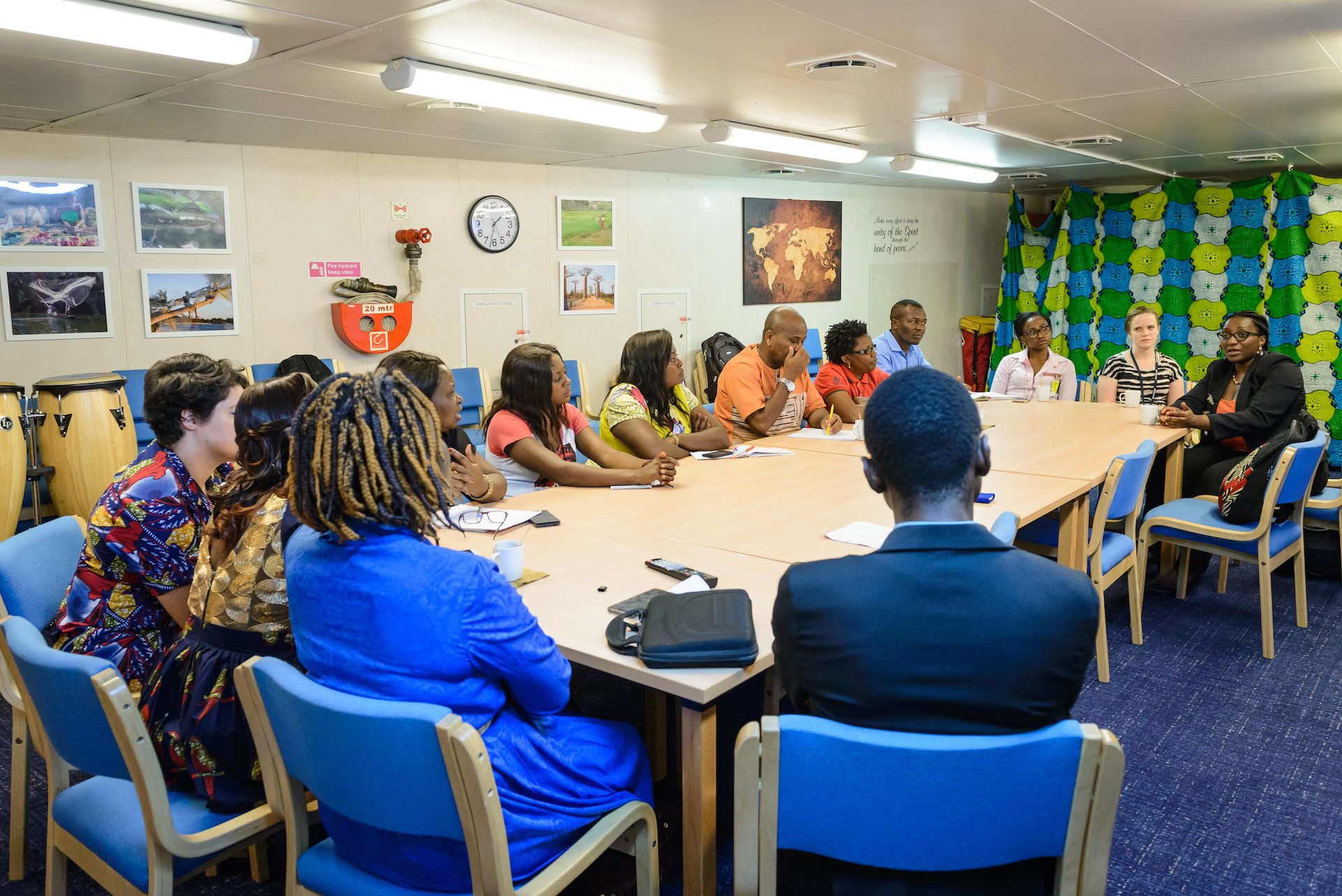PALLIATIVE CARE
Improving Patient Care

Recently thirty-three health care professionals, including pharmacists, nurses, doctors and social workers, attended the second Palliative Care Medical Capacity Building Program presented by Mercy Ships in Senegal. Here they learned how to better comfort, care for, and communicate with terminally ill patients and their loved ones—an often overlooked aspect of equipping the nations we serve.
Mercy Ships palliative care nurse Mariam Ibrahim from Ghana presented the “Breaking Bad News” session. She highlighted the importance of not making assumptions and having honest and open communication channels with terminally ill patients and their loved ones.
“When someone gets sick, especially with cancer and HIV, and has no hope of life they still deserve to finish their lives in dignity. All the environmental, psychological, and emotional trauma requires care,” says pharmacist Dr Assane Ka. “I wanted to do this course to understand this better, as it is not well understood in our country but deserves to be better known because there is much need.”
“It’s really good to talk about theory, but we have to put it into practice,” says social worker and course participant Aissata Diallo. “I will seek ways how, through our individual work, we can do more as a team and help each other out. With trust and working together, we can make palliative care something good for our country.”

Dr. Junior Mbayo, pulmonary specialist in training at a local hospital, treats many patients with lung cancer and incurable diseases. His attendance at the Mercy Ships Palliative Care Program supports his desire to come alongside his patients. As a takeaway, Dr. Mbayo says, “I will encourage my colleagues to improve their communication with the patients and to develop more trust, so that patients feel confident to share more openly with us.”